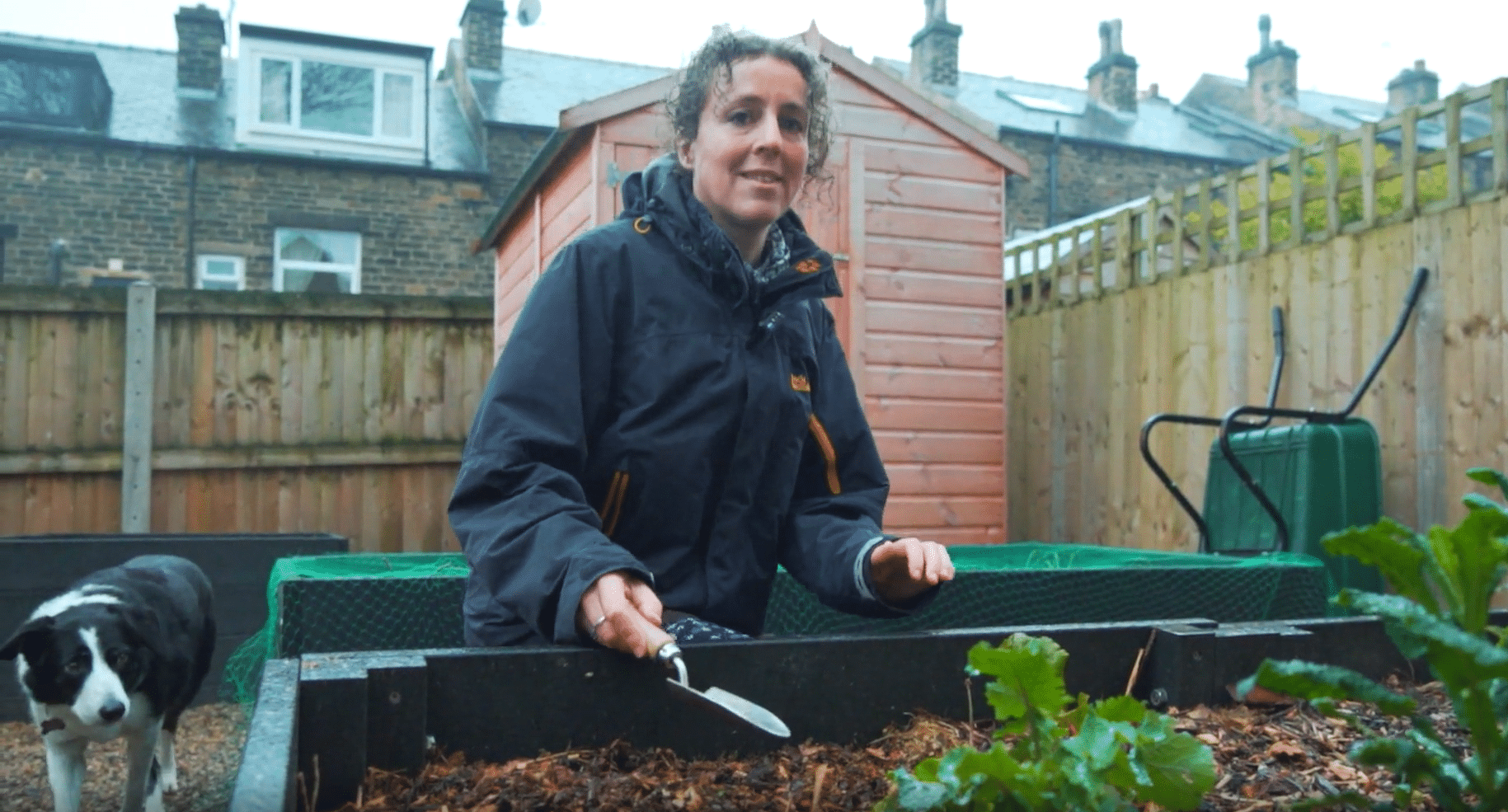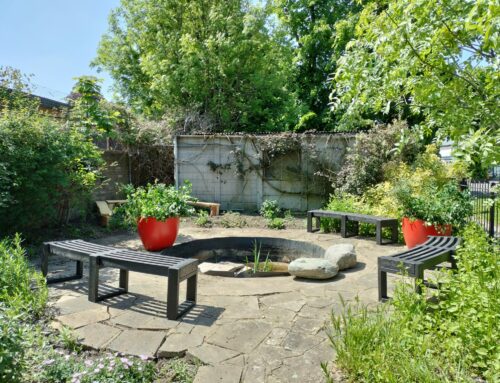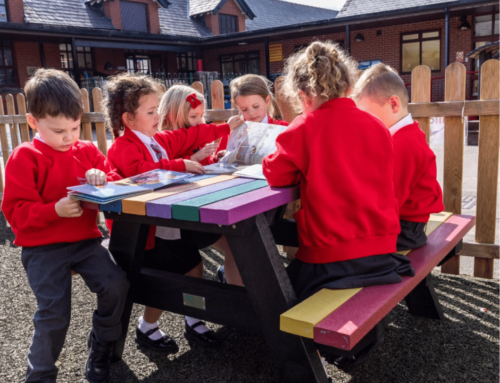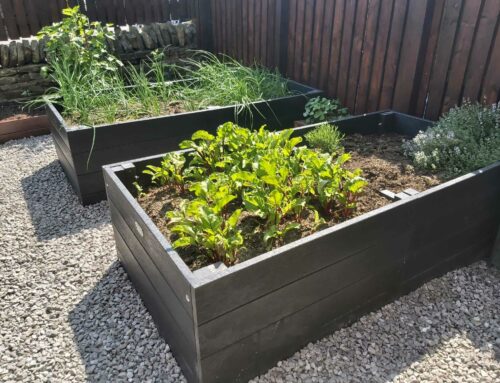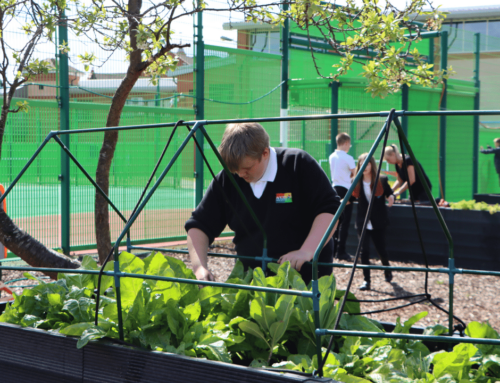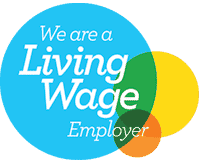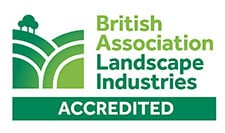Meet KT Shepherd, a professional gardener and permaculture educator currently living in Saltaire, West Yorkshire. KT strives to make permaculture as accessible as possible, specialising in edible gardening, health and wellbeing.
Permaculture is the development of agricultural ecosystems that can be grown in a self-sufficient and sustainable way, KT’s own definition being “a design system that uses ethics from indigenous cultures around the world to create solutions that heal and regenerate our planet and communities”.
KT recently installed four of our recycled plastic raised beds in her garden, so we paid her visit to find out more about permaculture and how she was getting along with the new products.
“I initially started using permaculture in farming work, and once I started learning about it in a more structured way, I realised how useful permaculture could be in many aspects of my work. Alongside the farming work, I was a specialist palliative care nurse for people coming towards the end of their lives. As well as being passionate about that in my nursing work, I was also very interested in how environmental factors and permaculture design could be used to improve how we die, in terms of environment, in terms of opportunities and choices. So that’s kind of where I started.
“A few years ago, I had quite a few significant life events including getting very sick from Lyme disease from a tick bite. So I moved from living in really remote locations to being back in Saltaire, which is where I grew up. I moved into a very urban house and started using permaculture to design my my garden here. I can still only really work part-time, so I tutor on a diploma in applied permaculture design, which I do remotely, and I also run online workshops.”
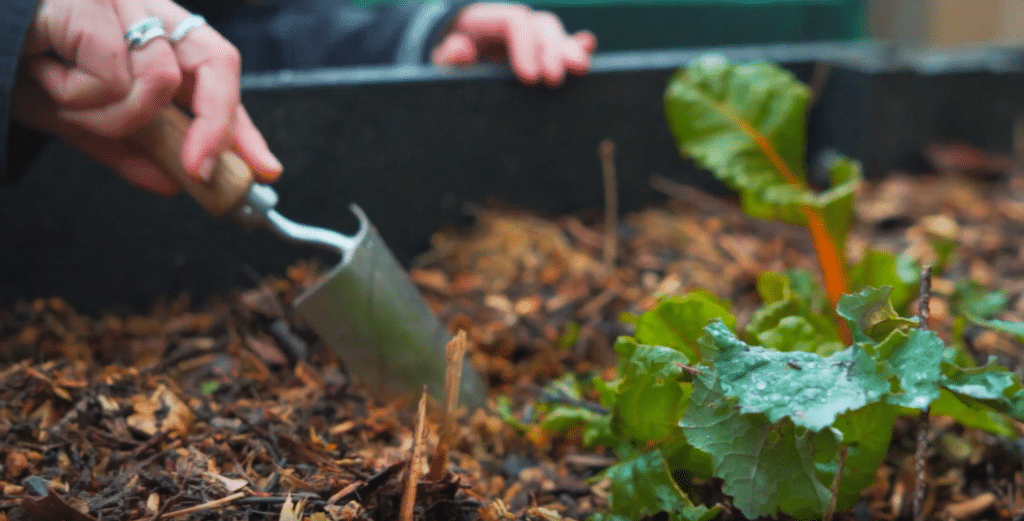
What is permaculture?
“The term permaculture was conceived by two white men from Tasmania who took information from how they experienced indigenous people and their systems for growing crops for their community, and also their interaction with the rest of nature. So they very much had an understanding that they were part of nature, and that nature and the environment wasn’t something separate from us.
“I think sometimes that truth is lost with some of our recent environmental and climate change activism and groups. There is a rhetoric that humans are destroying the planet and are losing quite a lot of connection with other humans, whereas actually we are part of the ecosystem of the planet. And by acknowledging that you’re part of something, you’re much more likely to value it and want to improve it.
“And this is where I’m at within permaculture – it’s very much around what can we do in our day to day lives that can undo some of the damage we’ve done to the planet, but also how that has impacted on our communities as well. And I think preserve care takes the principle of people care and fair shares, which to me is about privilege and access to health, to education, to teenagers connecting with nature.”
Permaculture in practise
“This stretch of main road outside the house that I moved into just over three years ago is one of the most congested stretches of road outside of London. When I bought the house, I didn’t actually realise that the piece of garden is so near the main road that you can’t really grow food crops on it, so I decided to create a wildlife space. I’m sowing wildflower grasses into the lawn area, and I planted about eighty trees along the fence line last winter. I also wanted to share on social media to encourage by example, so other people would do the same thing.
“There are a lot of difficult parts of social media, but I think – used in a really positive way – it’s useful for encouraging people within geographical communities to get together, support each other and share experiences.
“That not only has the benefit of creating an environment where starlings like to come and hang out in the trees here, but also helps within communities as well. The pandemic has taught us many things, but I think one thing that’s come out of it is how important supportive communities are.
“Permaculture in general tends to direct us to really observing a place for at least a year before you make any decisions about what to do with it. That can be anything from inside the home, to edible garden space like this. So I had a year to look at where the sun patterns moved and where difficult situations with winds might be, what I wanted a food growing space to look like and how it would function.”
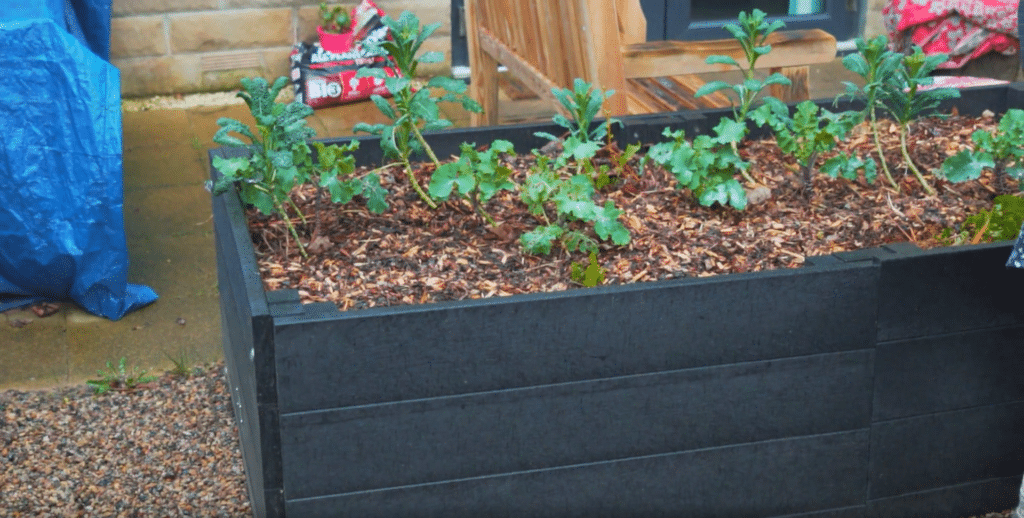
“In my farming years, I created edible gardens at two different hill farms. I used wooden raised beds to do that, and they weren’t as high as these new ones. And although the climate was much harsher, I saw quite quickly how much wood deteriorated over time and the need to replace it. Growing food in the UK climate, it’s wet, so slugs are a big issue, and in wood slugs are a massive issue.
“I had been part of a recycled plastic scheme in the Lake District in the early 2000s, and I was aware of it from seeing it in different spaces. There are nature reserves just near here where they’re using recycled plastic boards beside their pond areas. So I saw how that works and how strong it is.
“I started looking at alternatives and realised you guys were just over the hill in Hebden Bridge, and I thought what a good idea! When I moved into this house and started thinking about the garden, I was still significantly disabled from Lyme disease and I needed to sit down every few minutes. I wasn’t sure how much that was going to improve, so I decided to make the beds suitable for a seated person – so for a wheelchair user, or just somebody that needed to sit down a lot.
“Who knows, I might live in this house for most of my life. As I get older, what a great thing to already have in place because it’s really strong and it’s plastic and it’s going to be functioning for all that time.”
Thanks for spending time with us, KT – the garden is looking great!
You can learn more about KT and her extensive permaculture work here.
Choose British Recycled Plastic
By choosing British Recycled Plastic, you’re making a making a hugely positive change for the environment and actively helping to create a more sustainable planet. So why not get on board? We offer a range of products that are not only incredibly tough and durable, but actively help to dismantle the UK’s domestic waste mountain and keep plastic out of landfill.
Our recycled plastic is completely rot-proof, splinter-proof and maintenance-free and it comes with a 25-year guarantee. This means that year after year after year, it will keep its good looks and robust functionality without needing anything other than an occasional wash down. Of course, as it is chemically inert, it can be washed as often as wanted, with bleach, disinfectant or any other regular cleaning product.
We’re proud of how our role in the world of recycling is helping to reduce domestic waste and create products which are useful, long lasting and beautiful. Engineered from 100% British waste, our products are supplied to thousands of organisations and private homes across the UK: we believe they are the very best money can buy. We’re making waste wonderful.
Check out how our products are made here.
Visit British Recycled Plastics Webshop
Get in touch with our friendly and knowledgeable team by phone or email: 01422 419 555 [email protected]

